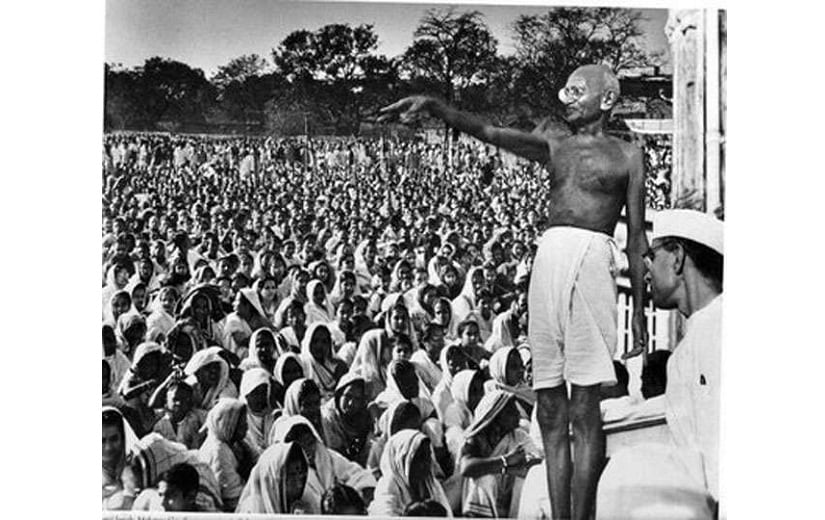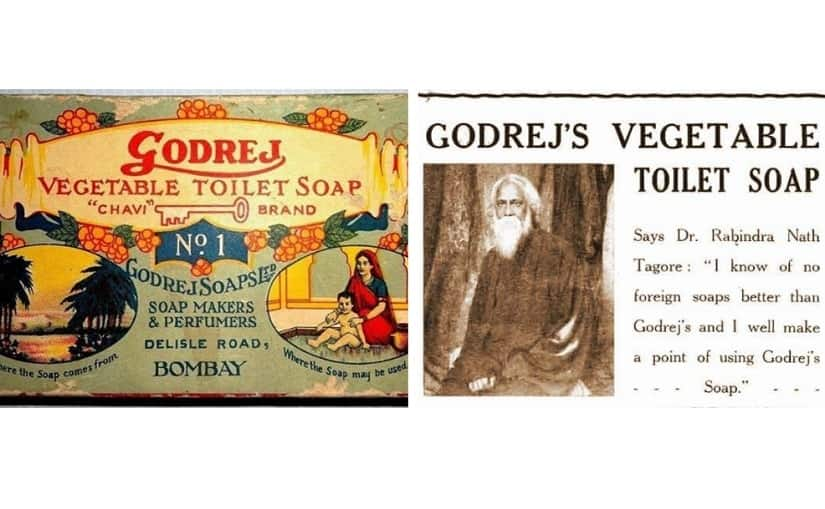Bhakta Vidur, a 1921 film made in wake of the Rowlatt Act, was based on the Hindu epic Mahabharata. Its protagonist, the mythological character of Vidur, was modelled after Mohandas Karamchand Gandhi. The film was produced by Dwarkadas Sampat, a Gandhian himself, and shown in the fabled Majestic cinema, Mumbai. However, the British came to know that the film projected them in a certain light that they did not approve of. Hence, Bhakta Vidur became the first political Indian film to be banned. The importance of the film does not only lie in its censorship, but also in the fact that it came from Mumbai – a city of major political activity whose role in the Indian independence movement must be acknowledged. Mumbai historian Murali Ranganathan, film scholar Amrit Gangar, corporate archivist Sanghamitra Chatterjee, and urbanist-architect Himanshu Burte, touched upon the environment of the city much before the landmark 1942 Quit India Movement was launched from multiple perspectives, at the National Gallery of Modern Art, Mumbai. [caption id=“attachment_7174001” align=“alignnone” width=“825”]  Mahatma Gandhi launches the Quit India movement in Mumbai, 1942.[/caption] It turns out that the earliest expression of political ideas came from Mumbai in the early 1830s. The first Indian newspaper in English, the Bombay Native Observer, carried op-eds on the impact of British policies on the Indian public. “By 1833 the charter of their East India Company was up for renewal, that’s when lobbying started in the UK and India which allowed a discourse on the monopolies of the British,” explained Ranganathan. Another editor on 11 July, 1833 in Mumbai wrote that the Europeans, even though liberal in their thinking, had their hands in our (Indians) pockets – a critique that perfectly described colonialism for the next 150 years, according to Ranganathan. The emergence of such a discourse made it easier for other people to understand what was happening in India and what was at stake. Much like the Indian freedom struggle, the city of Mumbai also shares a crucial relationship with Mahatma Gandhi. When he returned to India in 1915, Gandhi didn’t immediately plunge into active politics. He needed money and expertise for his plans, something he understood the capitalists of Mumbai would provide. This was a time when corporations in the country were mostly owned or co-owned by the British. The Indian capitalist class — the mill owners of Mumbai — weren’t participating in the freedom movement conspicuously. However, when Gandhi reached out to the businessmen, workers, women and peasants, something in their approach to freedom changed. “The traders of the Mulji Jetha market in Mumbai closed shops for an entire day. It was a clear statement to the British administration that acts such as the Rowlatt Act would not be tolerated. And their independence will not be questioned,” said Chatterjee. What started out with the Rowlatt Act was also reflected in the noncooperation movement, which was kicked off in Mumbai with another clear act of defiance. The first big foreign cloth bonfire took place in mill owner Umar Sobhani’s yard in Parel, who later along with Jamnalal Bajaj was made responsible for the Tilak Swaraj fund, which was created in memory of Lokmanya Tilak. Gandhi once again relied on the business community of Mumbai to collect and disburse funds for various noncooperation activities that were to follow. Naturally, he had now become the capitalist class’ spiritual leader. “Their allegiance lay with Gandhi, not the Congress; the Congress was too intellectual, too distant for them,” added Chatterjee. [caption id=“attachment_7174061” align=“alignnone” width=“825”]  As the Swadeshi movement gained steam in India, Mumbai based-brands such as Godrej, Bharat Floorings and Tiles displayed nationalistic sentiments through product packaging.[/caption] Mumbai and the business leadership’s response to the freedom movement can also be traced in the city’s architecture. Since the business class was not dominated by the British, it could build the city with other community leaders in partnership with the British. The Lakshmi statue atop the Lakshmi Insurance Building that still stands tall is one of the examples of the Indian business class’ engagement with the colonial masters as they maintained the colonial syntax while playing with unmistakably Indian elements. “It’s an interesting position to be in because they were tied into complicity as well as contradiction with the British administration,” explained Burte. While Gandhi and the city of Mumbai had cultivated a partnership, the movies were also catching up. Although his disdain for cinema, synonymous with Mumbai in those days, is well known, Gandhi never stopped holding meetings in movie halls which would later become cultural icons. Several burning issues, including indentured labour and cleanliness, were addressed in Opera House, Excelsior and New Empire Cinema between 1915 to 1924. Gandhi’s interaction with different communities of the city – either the affluent Malabar Hill business class or the Dalits of Worli — deepened his involvement in the character that Mumbai took on. India became independent in 1947. However, it is important to note that it still was not a ‘nation’. “Something happens in this very building in 1955,” said Gangar, his tone, revelatory. “In 1955, a satyagraha for Goa was organised here (Cowasji Jehangir Hall), in this hall, as the state was still under the Portuguese. And so, Mumbai has an important contribution to the liberation of Goa as well, and India became a nation as we know it today.” With the 73rd Independence Day behind us, the same city of Mumbai offers an important lesson in what makes a city, and in turn a nation: the space for all contradictions, complexities and narratives.
The earliest expression of political ideas came from the Indian owned newspapers published in the city of Mumbai in the early 1830s.
Advertisement
End of Article


)
)
)
)
)
)
)
)
)



